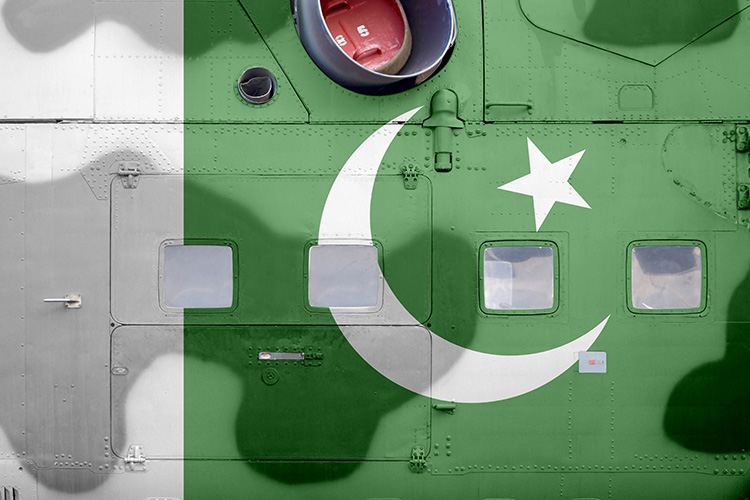Author Recent Posts Shizra Batool Latest posts by Shizra Batool (see all) War Crimes Committed by Israel in Palestine: Duality of West and International Humanitarian Law (IHL) – November 8, 2023 Parliament vs. Judiciary: lack of institutional independence – October 16, 2023 RISING COST OF FUEL AND ENERGY – A THREAT TO HUMAN SECURITY –
The right to fair trial is a legal principle that ensures individuals accused of crime are provided with a fair and unbiased judicial process. It is a fundamental and constitutional right guaranteed to all citizens of Pakistan by the Constitution. It guarantees fair court proceedings. It was incorporated into the constitution after the 18th amendment in 2010, prior to which there was no concept of providing a prisoner or suspected individual with the right to a fair trial. This privilege applies to both criminal and civil proceedings.
The right to a fair trial as stated in Article 10-A of the Constitution of Pakistan 1973, which is modeled on Article 10 of the United Nations Declaration of Human Rights, to which Pakistan is a signatory. More specifically, in the context of a ‘fair trial,’ the Constitution (Art.10A) provides for protection against illegal deprivation of life and liberty, including safeguards regarding arrest and detention, which require that an arrested and detained person be informed of the reason for his arrest, have the right to consult and be defended by counsel of his choice, and be produced before a magistrate within twenty-four hours of his arrest. Moreover, the Constitution protects against retrospective punishment, double punishment, and self-incrimination, preserves a person’s right to privacy in his or her home, his or her dignity, and prohibits the use of torture to get evidence.
Fair trials help to establish the truth and are a foundation of democracy. They also prohibit abuse of power by government and state officials. In the criminal justice system, the accused is regarded the “favorite child of the law” and is given the benefit of the doubt in the case. This means that individuals are presumed innocent until proven guilty, and any questions in the prosecution’s evidence are settled in favor of the accused. Ultimately, the principle of the benefit of the doubt is utilized to guarantee that the accused is not wrongfully convicted.
Delays in the administration of justice can jeopardize the right to a fair trial. Contradictory judgments by superior courts on a single point can also impact the right to a fair trial, and the principles of ratio decidendi, the rule of law on which a judicial decision is based, and stare decisis, the doctrine of precedent, under which a court must follow earlier judicial decisions when the same points arise again, are frequently not properly followed.
While IHL may permit military tribunals to try members of belligerent armed groups in specific situations, the cornerstone of fair trial in IHRL gives a considerably different perspective in this regard. The human rights and freedoms enshrined in the International Covenant on Civil and Political Rights, 1976 (ICCPR), must be analyzed in light of international rules and practice to determine the extent and limits of these protections. Pakistan adopted the Convention in 2010, hence the constitutionality of the 21st Amendment and PAAA will be examined in light of the protections provided by the ICCPR and the Constitution.
The Pakistan Army Act (PAA) of 1952 and the Official Secrets Act of 1923 allow civilians to be tried in military courts only under limited instances, such as encouraging mutiny and spying. Although the legality of military courts for civilian trials may appear to be contrary to IHRL and constitutional guarantees in some borderline cases, most or all aspects of the right to a fair trial have been adequately protected under the existing legal regime of military courts.
The UN Human Rights Committee has said unequivocally that the right to a fair trial before an independent and impartial court under Article 14 of the ICCPR applies to all courts, whether ordinary or specialized, civilian or military. The UN Human Rights Committee has also said that “the trial of civilians in military or special courts raises serious problems in terms of the equitable, impartial, and independent administration of justice.” It has also consistently urged countries to forbid civilians from being tried in military courts.
International standards require that military courts, like all other courts, must be independent, impartial and competent, and in criminal cases must respect minimum guarantees of fairness, including those set out in Article 14 of the ICCPR. Pakistan military courts are not independent and the proceedings before them fall far short of national and international fair trial standards. Pakistan Army Act does not guarantee either public trials in courts martial, or public hearings in courts martial appeals and the fair trial must be open to the public.
The rule of law requires officials to work within the law and to be held accountable. It also implies that everyone within a state is subject to the same laws. Nobody, no matter how rich or powerful, is above the law.
- War Crimes Committed by Israel in Palestine: Duality of West and International Humanitarian Law (IHL) - November 8, 2023
- Parliament vs. Judiciary: lack of institutional independence - October 16, 2023
- RISING COST OF FUEL AND ENERGY – A THREAT TO HUMAN SECURITY - September 15, 2023












Leave a Comment
Your email address will not be published. Required fields are marked with *